Filter by

The Persistence of memory: remembering slavery in Liverpool, 'slaving capital…
The Persistence of Memory is a history of the public memory of transatlantic slavery in the largest slave-trading port city in Europe, from the end of the 18th century into the 21st century; from history to memory. Mapping this public memory over more than two centuries reveals the ways in which dissonant pasts, rather than being ‘forgotten histories’, persist over time as a contested publi…
- Edition
- -
- ISBN/ISSN
- 9781789622577
- Collation
- xvi, 306p.: ill.
- Series Title
- -
- Call Number
- 306.3620942753 MOO p
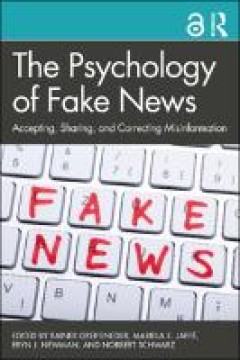
The Psychology of fake news: accepting, sharing, and correcting misinformation
This volume examines the phenomenon of fake news by bringing together leading experts from different fields within psychology and related areas, and explores what has become a prominent feature of public discourse since the first Brexit referendum and the 2016 US election campaign. Dealing with misinformation is important in many areas of daily life, including politics, the marketplace, health …
- Edition
- -
- ISBN/ISSN
- 9780429295379
- Collation
- xii, 241p.: ill.
- Series Title
- -
- Call Number
- 070.43 PSY p
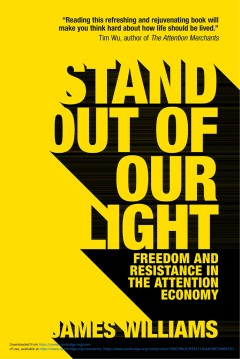
Stand out of our light : freedom and resistance in the attention economy
Former Google advertising strategist, now Oxford-trained philosopher James Williams launches a plea to society and to the tech industry to help ensure that the technology we all carry with us every day does not distract us from pursuing our true goals in life. As information becomes ever more plentiful, the resource that is becoming more scarce is our attention. In this 'attention economy', we …
- Edition
- -
- ISBN/ISSN
- 9781108453004
- Collation
- xv, 134p. : ill.
- Series Title
- -
- Call Number
- 153.733 WIL s

Model-based engineering of collaborative embedded systems : extensions of the…
This Open Access book presents the results of the "Collaborative Embedded Systems" (CrESt) project, aimed at adapting and complementing the methodology underlying modeling techniques developed to cope with the challenges of the dynamic structures of collaborative embedded systems (CESs) based on the SPES development methodology. In order to manage the high complexity of the individual system…
- Edition
- -
- ISBN/ISSN
- 9783030621360
- Collation
- xiii, 404p. : ill.
- Series Title
- -
- Call Number
- 005.1 MOD m
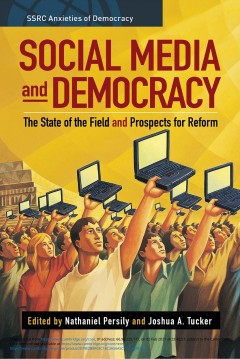
Social media and democracy : the state of the field, prospects for reform
Over the last five years, widespread concern about the effects of social media on democracy has led to an explosion in research from different disciplines and corners of academia. This book is the first of its kind to take stock of this emerging multi-disciplinary field by synthesizing what we know, identifying what we do not know and obstacles to future research, and charting a course for the …
- Edition
- -
- ISBN/ISSN
- 9781108890960
- Collation
- xvii, 345p. : ill.
- Series Title
- -
- Call Number
- 302.231 SOC s

The disinformation age : politics, technology, and disruptive communication i…
The intentional spread of falsehoods – and attendant attacks on minorities, press freedoms, and the rule of law – challenge the basic norms and values upon which institutional legitimacy and political stability depend. How did we get here? The Disinformation Age assembles a remarkable group of historians, political scientists, and communication scholars to examine the historical and politic…
- Edition
- -
- ISBN/ISSN
- 9781108914628
- Collation
- xxvii, 293p. : ill.
- Series Title
- -
- Call Number
- 320.973014 DIS d
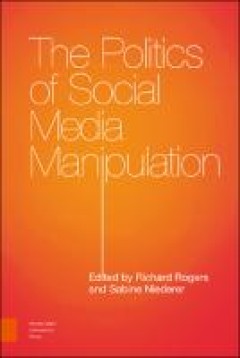
The politics of social media manipulation
Disinformation and so-called fake news are contemporary phenomena with rich histories. Disinformation, or the willful introduction of false information for the purposes of causing harm, recalls infamous foreign interference operations in national media systems. Outcries over fake news, or dubious stories with the trappings of news, have coincided with the introduction of new media technologies …
- Edition
- -
- ISBN/ISSN
- 978 90 4855 167 5 (
- Collation
- 292 p.
- Series Title
- -
- Call Number
- 320 POL p

Digital entrepreneurship in Africa : how a continent is escaping Silicon Vall…
The hope and hype about African digital entrepreneurship, contrasted with the reality on the ground in local ecosystems. In recent years, Africa has seen a digital entrepreneurship boom, with hundreds of millions of dollars poured into tech cities, entrepreneurship trainings, coworking spaces, innovation prizes, and investment funds. Politicians and technologists have offered Silicon Valley–i…
- Edition
- -
- ISBN/ISSN
- 9780262538183
- Collation
- XI, 323 p.
- Series Title
- -
- Call Number
- 381.14206567 FRI d
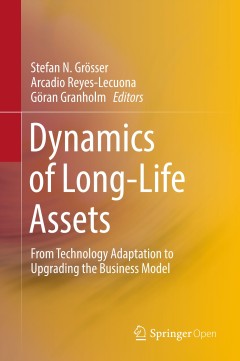
Dynamics of long-life assets : from technology adaptation to upgrading the bu…
The editors present essential methods and tools to support a holistic approach to the challenge of system upgrades and innovation in the context of high-value products and services. The approach presented here is based on three main pillars: an adaptation mechanism based on a broad understanding of system dependencies; efficient use of system knowledge through involvement of actors throughout t…
- Edition
- -
- ISBN/ISSN
- 9783319454382
- Collation
- xxvi, 356p. : ill.
- Series Title
- -
- Call Number
- 658.514 GRO d
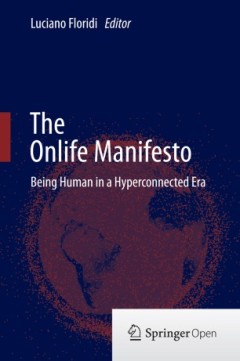
The onlife manifesto : being human in a hyperconnected era
What is the impact of information and communication technologies (ICTs) on the human condition? In order to address this question, in 2012 the European Commission organized a research project entitled The Onlife Initiative: concept reengineering for rethinking societal concerns in the digital transition. This volume collects the work of the Onlife Initiative. It explores how the development and…
- Edition
- -
- ISBN/ISSN
- 9783319040936
- Collation
- xiv, 264p. : ill.
- Series Title
- -
- Call Number
- 601 LUC t
 Computer Science, Information & General Works
Computer Science, Information & General Works  Philosophy & Psychology
Philosophy & Psychology  Religion
Religion  Social Sciences
Social Sciences  Language
Language  Pure Science
Pure Science  Applied Sciences
Applied Sciences  Art & Recreation
Art & Recreation  Literature
Literature  History & Geography
History & Geography